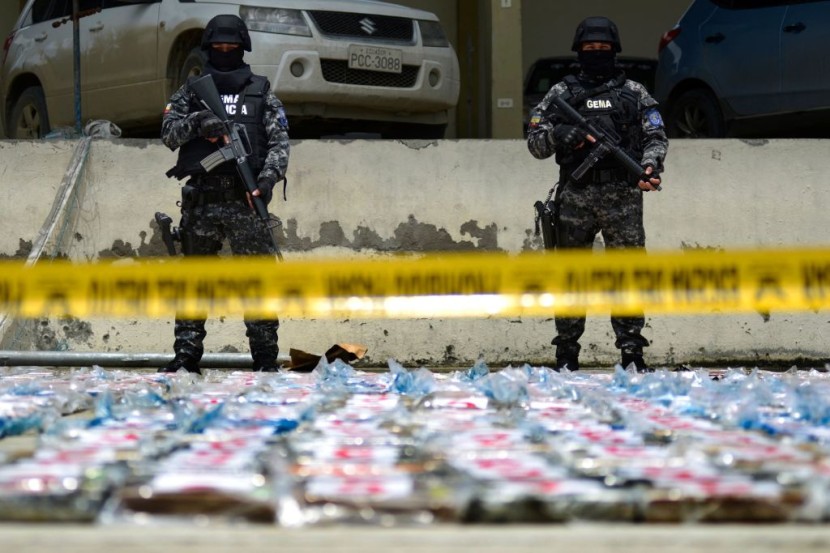
The United States government has pledged additional financial support for Ecuador's anti-drug initiatives to boost the South American country's research and preventive actions against drug trafficking and organized crime.
The decision would also focus on enhancing and restructuring the nation's judicial sector. Ecuador's Ministry of Foreign Affairs and Human Mobility revealed the American government's pledge. It came after the endorsement of "Amendment 19" to a cooperation agreement formed in 2002.
US Supports Ecuador's Anti-Drug Initiatives
The amendment's goal is for the US to support Ecuador in boosting its operational effectiveness against high-profile crimes, particularly those linked to drug trafficking. Gustavo Manrique, Ecuador's foreign minister, said that the revision would bring in more resources that would benefit several national institutions, such as the Armed Forces, National Police, and the Judiciary.
He noted that the additional funding from the American government will channel into two pivotal projects. The first is "public safety order," and the second is "judicial sector capacity building and reforms," as per the Rio Times.
The United States has steadily given resources to Ecuador so that the latter could reinforce its battle against drug-related crimes. This was done through the International Narcotics and Law Enforcement Affairs Office from 2002 to 2022.
Ecuador is between cocaine-producing giants Colombia and Peru, which has become a hotspot for drug-related violence. The crimes peaked in 2022 when the nation recorded its highest-ever homicide rate of 25.32 per 100,000 population.
Organized crime factions are known to be in constant contention for control over cocaine, which is majorly sourced from Colombia and makes its way to global markets, primarily the US and Europe.
The situation in the country only worsened after Presidential candidate Fernando Villavicencio was assassinated in Quinto on Aug. 9 during a rally. After the horrific incident, former President Rafael Correa released a message on social media saying that Ecuador has become a "failed state," according to The Conversation.
Ecuador's Current Situation
The killing of Villavicencio follows the murder of Agustin Intriago, the mayor of the port city of Manta, on July 23 and that of Rider Sanchez, who was shot dead on July 17. The present turmoil follows relatively peaceful times under the rule of Correa from 2007 to 2017, when gangs were legalized as "cultural associations" or urban youth groups.
The former administration's policies allowed gangs to apply for government funding in exchange for a commitment to ending violence. This led to a rapid drop in the homicide rate within the nation.
However, in the last five years, this number has gone up, making the South American nation one of the region's most violent countries. Villavicencio's death comes as he was known to take on the country's criminal networks fearlessly and the political elites that he claims were the hands of organized crime in Ecuador.
He waged a yearslong fight against the forces that he saw were changing the environment within the nation, including crime that was seeping into nearly every aspect of the life of residents. His efforts made some of his country's most potent into his enemies, said the Associated Press.
Related Article : Purged Russian General in Charge of Ukraine Invasion Found Dead
© 2025 HNGN, All rights reserved. Do not reproduce without permission.








